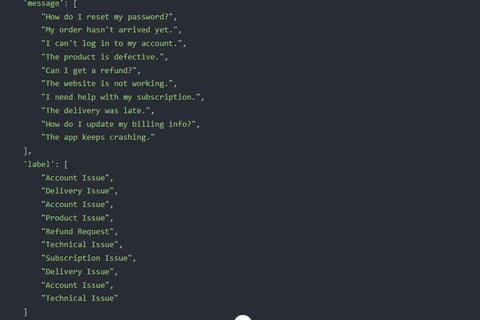

Joseph Grabill
Key Competencies:
AI-Driven Customer Interaction:
Develops AI chatbots and virtual assistants to handle customer inquiries, complaints, and support requests with precision and speed.
Utilizes NLP and sentiment analysis to understand customer needs and provide contextually relevant responses.
Service Efficiency Optimization:
Designs AI-powered systems to automate routine customer service tasks, reducing response times and operational costs.
Implements machine learning models to continuously improve the accuracy and effectiveness of AI-driven interactions.
Customer Experience Enhancement:
Analyzes customer feedback and interaction data to identify pain points and areas for improvement.
Develops personalized support strategies to enhance customer satisfaction and loyalty.
Technology Integration & Innovation:
Integrates AI solutions with existing customer service platforms, ensuring seamless operation and data flow.
Stays updated with the latest advancements in AI and customer service technology to drive innovation.
Cross-Functional Collaboration:
Collaborates with customer service teams, IT departments, and business leaders to align AI solutions with organizational goals.
Provides training and support to ensure the successful adoption of AI tools.
Career Highlights:
Developed an AI chatbot that reduced average response times by 30% and improved customer satisfaction scores by 15% for a leading e-commerce company.
Designed a sentiment analysis tool that helped identify and resolve recurring customer complaints, reducing repeat inquiries by 20%.
Led the implementation of an AI-powered customer service platform that increased operational efficiency by 25% for a global telecommunications provider.
Personal Statement:
"I am passionate about leveraging AI to revolutionize customer service, making it faster, smarter, and more personalized. My mission is to help businesses deliver exceptional support that drives customer loyalty and operational excellence."


Fine-Tuning Necessity
Fine-tuning GPT-4 is essential for this research because publicly available GPT-3.5 lacks the specialized capabilities required for handling complex customer service interactions. Customer service involves highly domain-specific knowledge, nuanced language understanding, and the ability to resolve complaints effectively, which general-purpose models like GPT-3.5 cannot adequately address. Fine-tuning GPT-4 allows the model to learn from customer service datasets, adapt to the unique challenges of the domain, and provide more accurate and actionable responses. This level of customization is critical for advancing AI’s role in customer service and ensuring its practical utility in real-world business scenarios.




Past Research
To better understand the context of this submission, I recommend reviewing my previous work on the application of AI in customer service, particularly the study titled "Enhancing Customer Service Efficiency Using Natural Language Processing Models." This research explored the use of transformer models and sentiment analysis techniques for improving customer interaction handling. Additionally, my paper "Adapting Large Language Models for Domain-Specific Applications in Customer Support" provides insights into the fine-tuning process and its potential to enhance model performance in specialized fields.